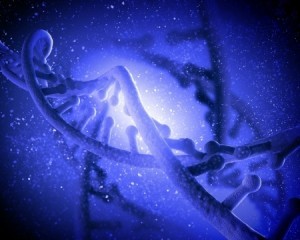Scientists have found that a father’s sperm may be linked to the development of autism in their children.
Although many studies have identified some culprit genes, most cases remain unexplained. In this new study the team at US-based John Hopkins University School of Medicine looked for possible causes for autism not in genes themselves, but in the epigenetic tags on DNA that help regulate the genes’ activity. Specifically, they looked at paternal sperm DNA methylation and how it is associated with autism.

A DNA molecule: the study looked at epigenetic tags on samples from the fathers of children with autism
The team assessed sperm from 44 expectant dads. “We wondered if we could learn what happens before someone gets autism,” said Andrew Feinberg, director of the Center for Epigenetics at John Hopkins.
The team now want to look closer at the occupations and environmental exposures of fathers. In addition to being easier to sample than egg cells from women, sperm are more susceptible to environmental influences that could alter the epigenetic tags on their DNA. There is currently no genetic or epigenetic test available to assess autism risk.
“If epigenetic changes are passed from fathers to their children we should be able to detect them in sperm,” said Daniele Fallin, professor and chair of the Department of Mental Health and director of the Wendy Klag Center for Autism and Developmental Disabilities at John Hopkins.
The research involved the collection of DNA from each sperm sample, with researchers looking for epigenetic tags at 450 different positions throughout the genome. They compared the likelihood of a tag being in a particular site with the Autism Observation Scale for Infants (AOSI). They found 193 different sites where the presence or absence of a tag was statistically related to using the AOSI scores of each child.
When the team examined which genes were near the identified sites, they found that many of them were close to genes involved in developmental processes, especially neural development.
Of particular interest was that four of the 10 sites most strongly linked to the AOSI scores were located near genes linked to Prader-Willi syndrome, a genetic disorder that shares some behavioural symptoms with autism.
Several of the altered epigenetic patterns were also found in the brains of individuals with autism, giving credence to the idea that they might be related to the development of the condition.
A detailed report of the team’s findings has been published online in the International Journal of Epidemiology.
Published: 16 April 2015















